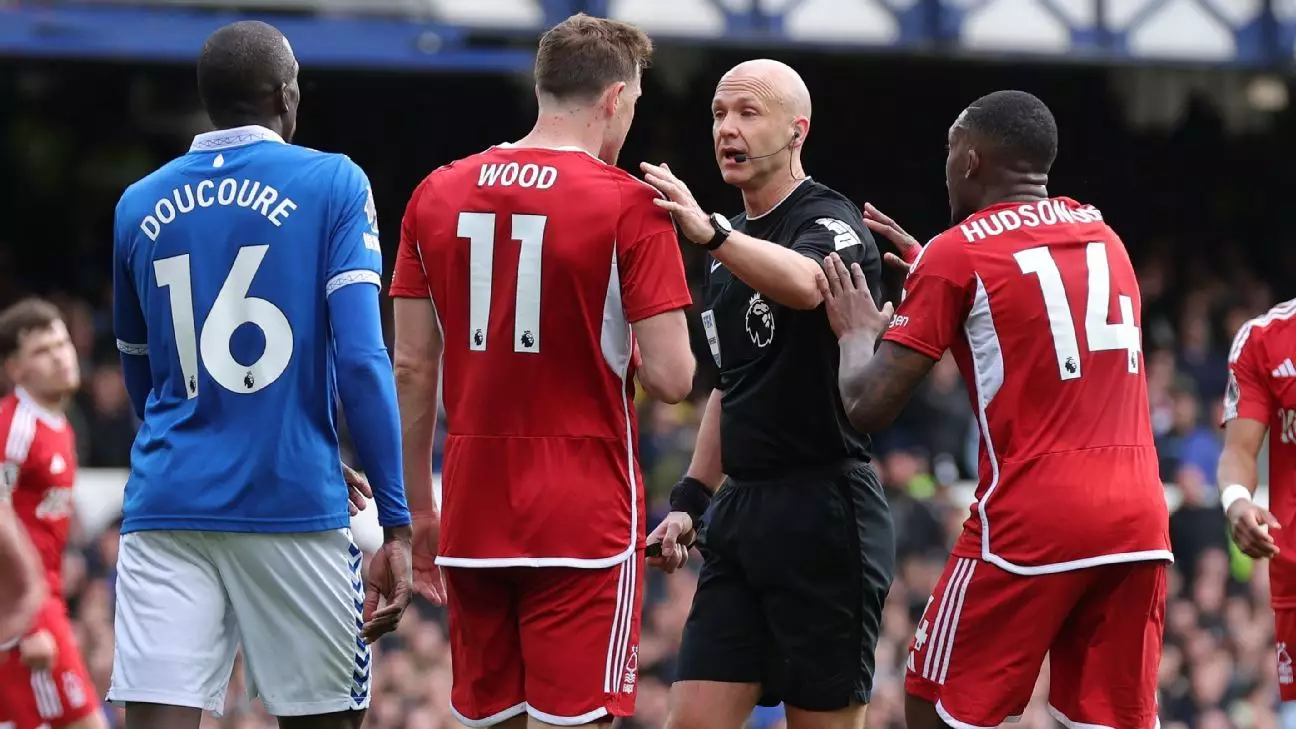Nottingham Forest recently experienced a controversial 2-0 defeat against Everton, during which the club was on the receiving end of what they deemed to be unfair VAR decisions. The club expressed their frustration on social media, claiming that three penalties were wrongly not given in their favor. This led to questions being raised about the integrity of the VAR system, especially due to the fact that the referee, Stuart Attwell, was a fan of Luton Town – a club that was in a relegation battle with Forest at the time.
Following Forest’s outburst on Twitter, the Football Association (FA) launched an investigation into the nature of the club’s initial tweet, as well as comments made by both the manager, Nuno Espirito Santo, and defender Neco Williams. In addition, former Premier League referee Mark Clattenburg, who currently works as a consultant for Forest, was asked to explain the contents of a newspaper article he had written criticizing the officiating during the match.
The Premier League’s Independent Key Match Incidents Panel conducted an assessment of the match incidents and concluded that there was only one VAR error out of the three incidents that Forest had complained about. The panel unanimously agreed that a penalty claim for a foul by Ashley Young on Giovanni Reyna and a handball by Young did not warrant VAR intervention. However, they did find that Young should have been penalized for bringing down Callum Hudson-Odoi inside the penalty area in the second half.
Regarding the foul on Reyna in the 24th minute, the panel determined that while there was contact between the defender and the attacker, it was minimal and exaggerated by Reyna. This contact did not meet the threshold for a penalty. As for the handball incident in the 44th minute, the panel had a split decision on referee Anthony Taylor’s call but unanimously agreed that VAR should not have intervened. The panel deemed it to be a subjective call, with Young’s arm being in a justifiable position.
The Independent Panel consists of five members, including former players, coaches, and representatives from both the Premier League and PGMOL. Their role is to provide an independent assessment of major match incidents, free from the influence of either the PGMOL or the clubs involved. This process was implemented at the beginning of last season to ensure a fair and unbiased evaluation of decision-making during matches.

Leave a Reply